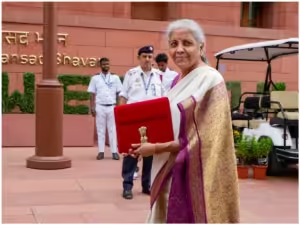Finance Minister Nirmala Sitharaman informed Parliament that the government would establish 100 approved food testing labs across the nation along with an equivalent number of street food hubs.
Financial support for setting up 50 multi-product food irradiation units in the MSME sector will be provided. The setting up of 100 food quality and safety testing labs with NABL accreditation will be facilitated.
She also proposed a scheme to develop 100 weekly ‘haats’ or 100 street food hubs in selective cities.
This includes strengthening the network of food testing laboratories around the country, assuring the quality of food testing, investing in human resources, carrying out surveillance activities and educating consumers.

In India, the quality, safety and standards of the food products are regulated by the Food Safety Standard of India (FSSAI). The main responsibilities of FSSAI are:
- Establishing science-based standards for food products.
- Regulating the manufacture, storage, distribution, sale, and import of food.
- Licensing and regulating food businesses.
- Overseeing food import and export.
- Setting rules and guidelines for food manufacturing companies.
According to FSSAI data, as of May 5th, the regulatory body has 206 major food testing labs recognized by NABL.
These testing labs are tasked with analyzing food samples gathered in accordance with the Food Safety and Standards Act of 2006.
Many foods and ingredients routinely fail safety and quality tests. The cases of adulteration and mislabeling is increasing rapidly. This decision will help to control such cases.
When compared to the same products offered in Western nations, it was stated that Nestlé’s well-known infant food Cerelac, which is sold in India, has extra sugar. In India, PepsiCo Lays’ used palm oil, although in other countries, they used sunflower oil.
Date : Sunday, 28 July 2024
Time : 10 am to 05 pm
To get regular Food Industry updates, feel free to join our WhatsApp group: Joining link